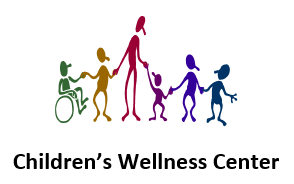Unfortunately, in our modern culture that values work ethic, discipline, and productivity, we have largely come to associate playtime with wasted time. While it is important to learn how to behave and exist within a structured, scheduled environment, play is most definitely not a waste of time, especially for children (of all ages) whose brains are developing.
The Connection Between Play and Brain Development
Play supports healthy brain development in children by enhancing and strengthening neural connections throughout the brain. Play helps support the development of important cognitive functions, such as:
- Critical thinking
- Decision-making
- Problem-solving
- Planning
- Creativity and imagination
- Memory
- Focus and concentration
- Language Skills
Additionally, play supports the strong socio-emotional development, helping children develop self-control and improve their emotional regulation, coping mechanisms, resilience, confidence, independence, empathy, and social skills through taking turns, sharing, collaborating, communicating, and practicing teamwork.
Through play, infants, toddlers, and children develop a strong and diverse set of neural pathways, while releasing connection-forming chemicals (like dopamine and oxytocin). Engaging in play — starting at birth and continuing through childhood — creates the strong neural architecture that supports ongoing learning, cognitive function, health, and positive behavior throughout life.
What Is Cognitive Play?
Cognitive play is active play that challenges and stimulates a child’s brain with critical thinking, reasoning, problem-solving, memory, creativity, and communication. It supports experimentation, exploration, discovery, and teamwork.
Examples of cognitive play activities include:
- Puzzles
- Memory games
- Building and construction toys
- Imaginative or pretend play
- Storytelling
- Sorting and matching games
- Games with rules
- Collaborative play
Age-Appropriate Play Ideas
The play activities that are most beneficial to children are those that are age-appropriate. Cognitive play for children should engage and challenge, but it should not be so challenging that it becomes discouraging.
Six Months
At any age, but especially in infancy, following your baby’s lead is best. They will be interested in the games that are most beneficial to them. Simple activities like pat-a-cake and peekaboo help babies develop motor skills, social skills, and self-control.
Nine Months
At nine months, babies start to benefit from playing imitation games where caregivers make a gesture or facial expression and their baby copies the action. Hiding games that challenge babies to find a hidden object or caregiver are also beneficial at this age for developing memory and attention.
12 Months
Toddlers naturally love playing “fill and dump” games. Giving them lots of different containers and safe items to fill them with helps them practice motor skills. While babies mainly love dumping, it’s good to encourage them to do the filling, too.
18 Months
At this age, toddlers begin to recognize patterns and understand the concepts of similar and different. Challenging them with simple matching and sorting games is excellent, while singing active nursery rhymes with gestures helps them develop motor, memory, and language skills.
Two to Three Years
Continue practicing active songs. Plus, playing games like follow the leader or red-light-green-light helps children develop motor skills, memory, and self-control.
Four to Seven Years
Popular games like I Spy, Simon says, and freeze dance are easy for this age group to learn, and they are great for developing self-control, executive function, and physical skills. Plus, they can play these games with their peers to strengthen independence and social and emotional development.
Eight to 12 Years
As children get older, their play becomes increasingly diverse and complex. They can engage in games with more complicated rules, like board games, card games, and strategy games. Additionally, they understand and benefit from playing with puzzles like word finds, crosswords, mazes, brain teasers, and sudoku. Fantasy role-playing games, like Dungeons and Dragons, help children continue to strengthen their imagination, creativity, social skills, and problem-solving skills.
13 to 17 Years
As teens’ lives become busier and they begin to “grow out” of children’s games, they still benefit from play (or unstructured activities like time singing, dancing, participating in sports, or playing a musical instrument), which can continue executive function development and self-regulation while helping to prevent burnout. Additionally, teens (and adults) enjoy role-playing games like Dungeons and Dragons, so this can be a good family activity.
Encouraging Independent Exploration
Playtime with parents and caregivers is important, but it’s also good to encourage children to play and explore (with safe boundaries) on their own to further support the development of independence, resilience, and problem-solving skills.
Explore the Role of Play in Cognitive Development With a Pediatrician
As the crucial role of play in cognitive development becomes increasingly apparent, more and more pediatricians are writing prescriptions for play.
If you are concerned about your child’s cognitive, social, or emotional development, we welcome you to talk with a pediatrician at Children’s Wellness Center for additional guidance and support regarding beneficial age-appropriate cognitive play activities. Contact us today to set up an appointment.

